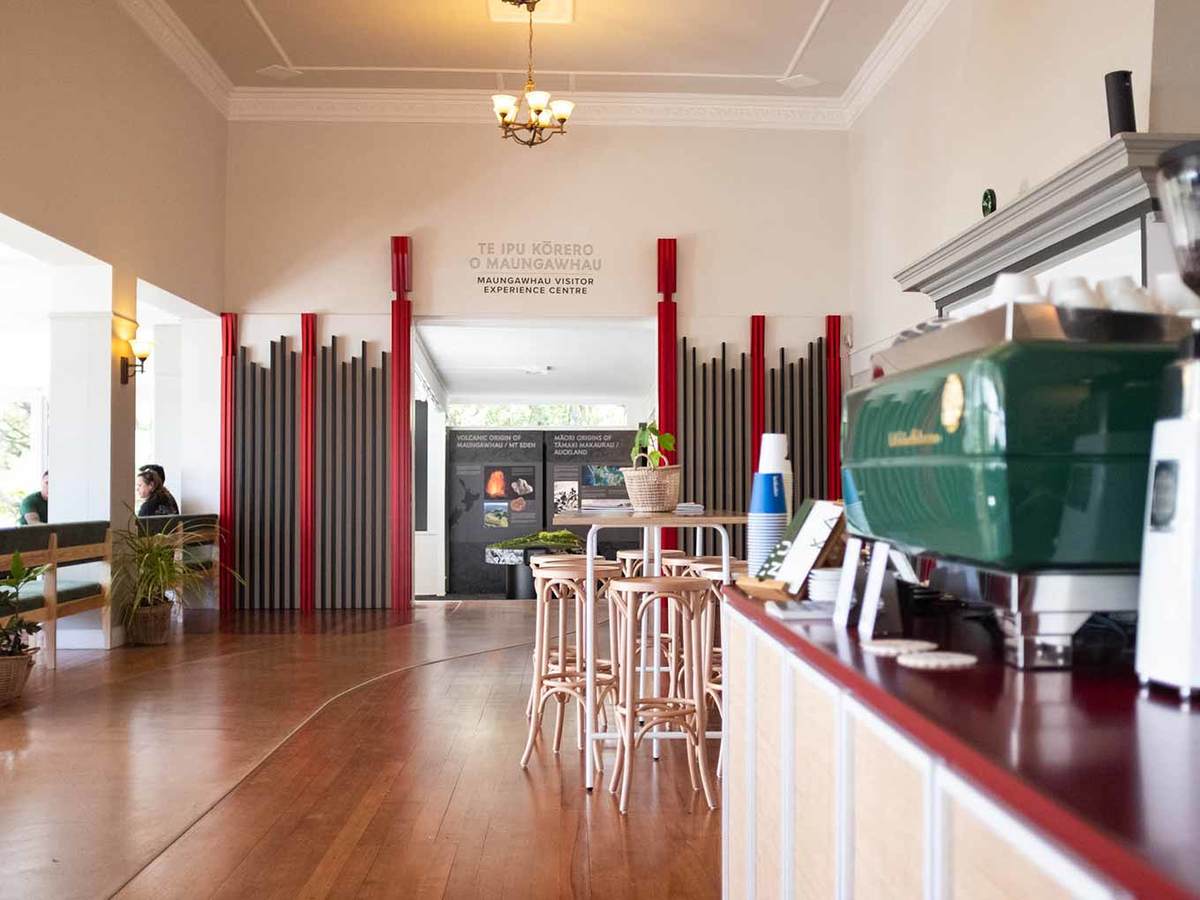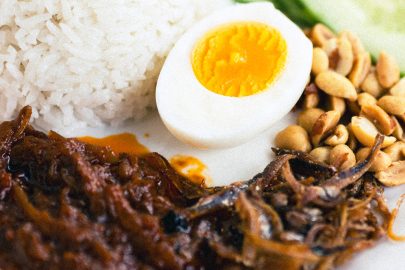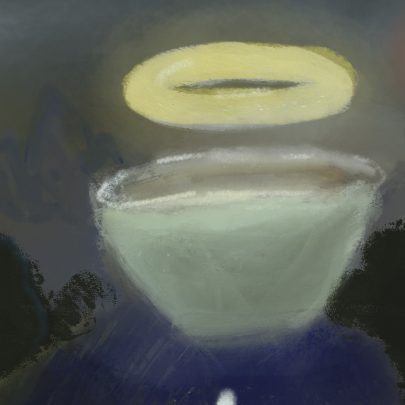Dec 13, 2019 Cafes
With every aspect carefully considered to honour the nearby mountain, Whau (a new cafe up the side of Mt Eden/ Maungawhau) is as much a letter of aroha to the maunga and Maori culture as it is a cafe.
Surrounded by native bush with tui and kereru swooping amongst the pohutukawa and kawakawa trees, looking out over the Waitemata Harbour is Whau, named for the cork tree to which the Mount Eden’s Maori title refers. Maungawhau means mountain of the cork tree, a tree used in Maori medicine which was once abundant here. A small, potted whau sits on a table and a picture of the plant hangs on the wall. A cork path runs through the cafe toward a discovery centre with an interactive model of the maunga and panels detailing the history of the area.
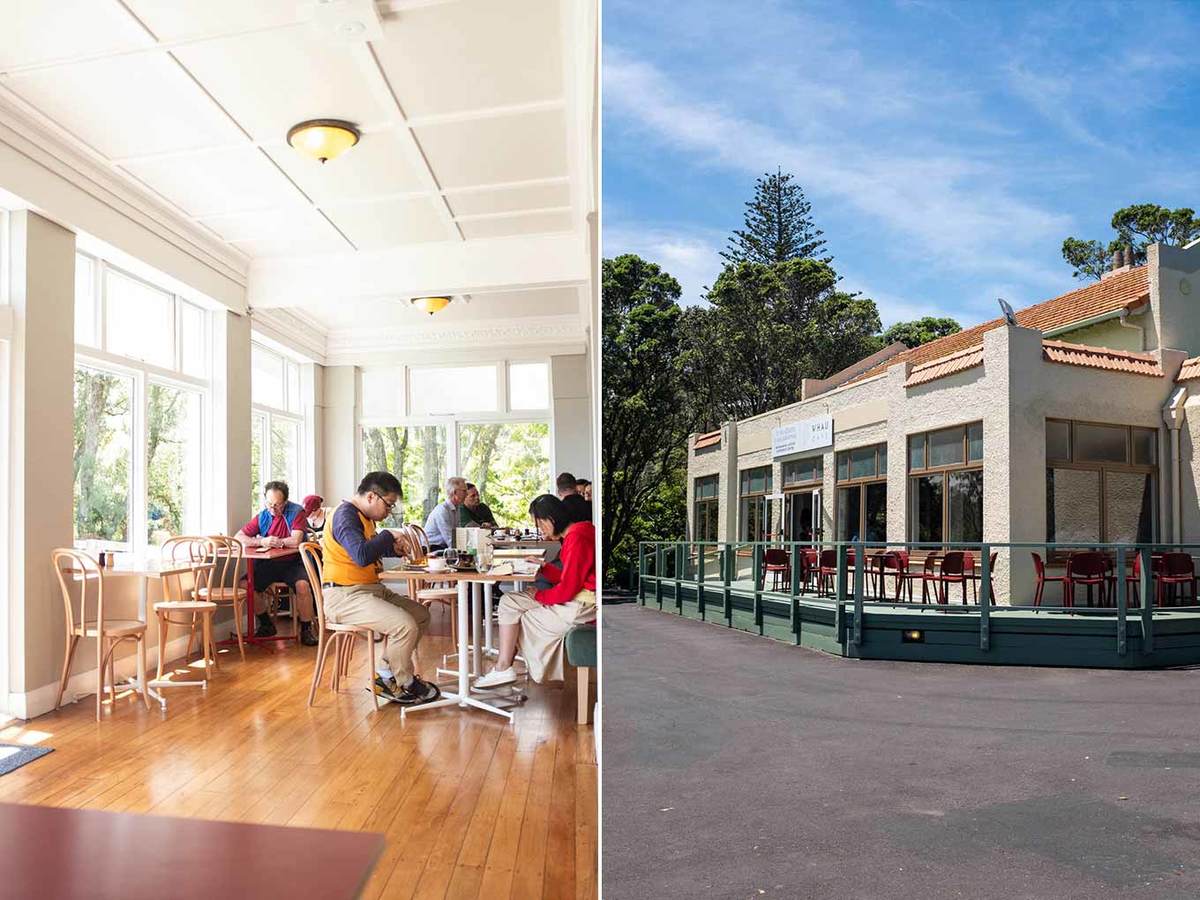
Whau is owned by Dane Tumahai and his cousin Paora Puru – Tumahai has been running a real fruit ice cream shop out of the heritage building for two years already. Now they’re able to open the whole building as a cafe, having won the support of the Tupuna Maunga o Tamaki Makaurau, the legislating body of the 13 iwi and hapu of the Tamaki Collective.
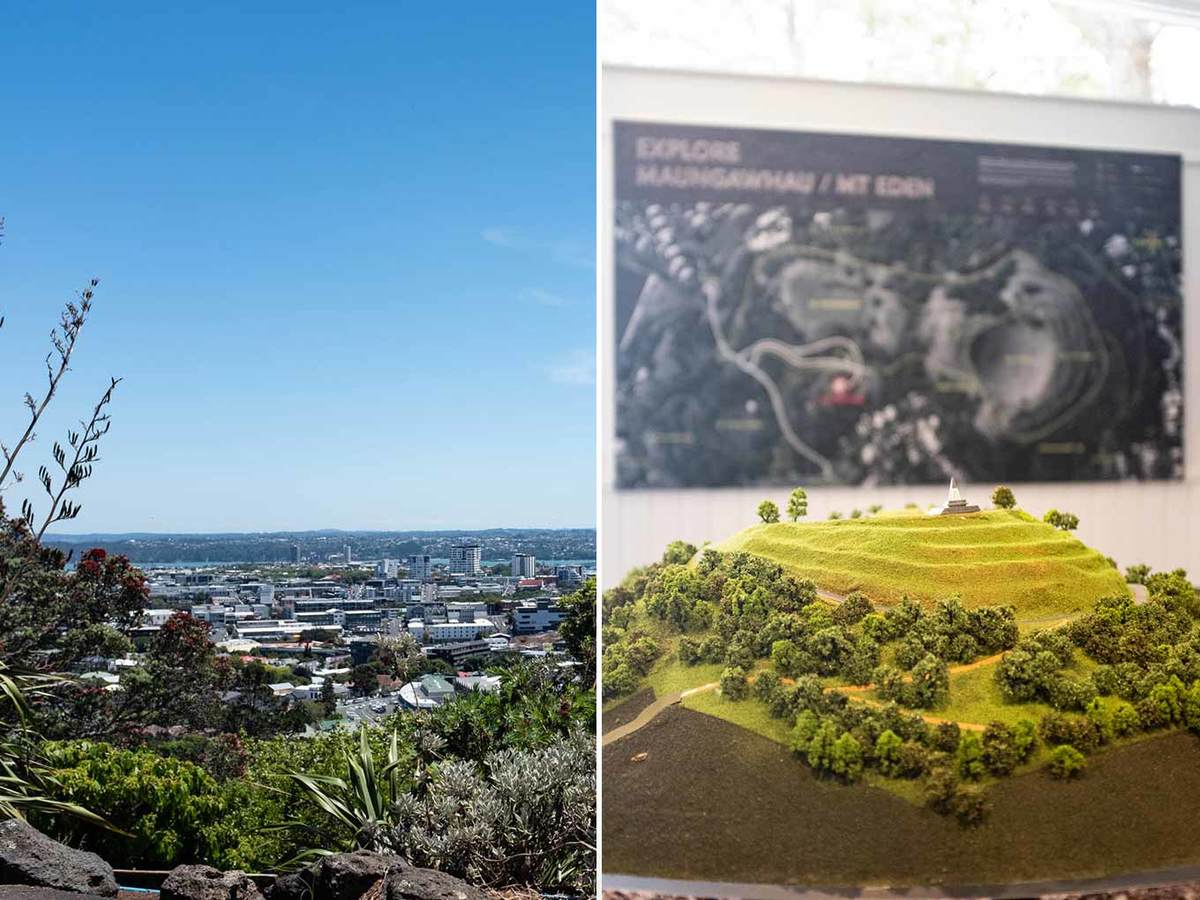
Tumahai and Puru are direct descendants of the Maori chiefs living on Maungawhau before New Zealand was settled. “In fact it was my chief, Apihai Te Kawau… who invited governor Hobson down from up north at the time of the signing of the treaty, who gifted 300,000 acres to establish Auckland city,” Tumahai says. Though the discovery centre is run by Mike George of Tupuna Maunga cousins also run a tourism business giving guided tours of Auckland, Taupua Tours, so guests will find themselves in good hands if they’re looking out over the city wanting to know what’s where.
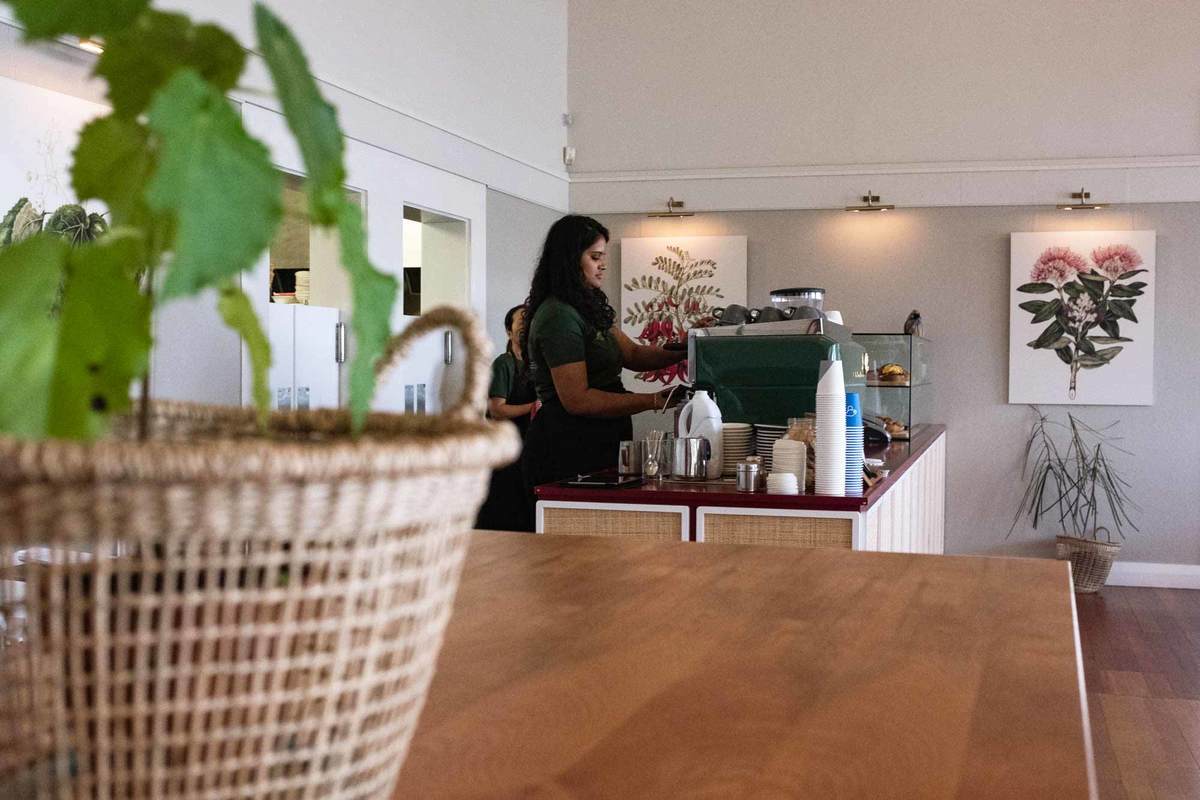
Every aspect of Whau consciously honours its place on the maunga. Topographical maps of Auckland’s 14 Tupuna Maunga (ancestral mountains) decorate tables throughout the cafe while blue insets in two of the tables represent the Waitemata and Manukau harbours. The fit out is by Garrick Numan for Millé Design and the colour scheme is largely red, green and blue, representing Papatuanuku, the earth mother, and Ranginui, the sky father. Look out the windows of Whau, or climb a little higher (Maungawhau is Auckland’s second-tallest volcano, pipped only by Rangitoto) and you’ll be able to see all the mountains they’re paying homage to, along with the pits Maori once used to store kumara through the winter.
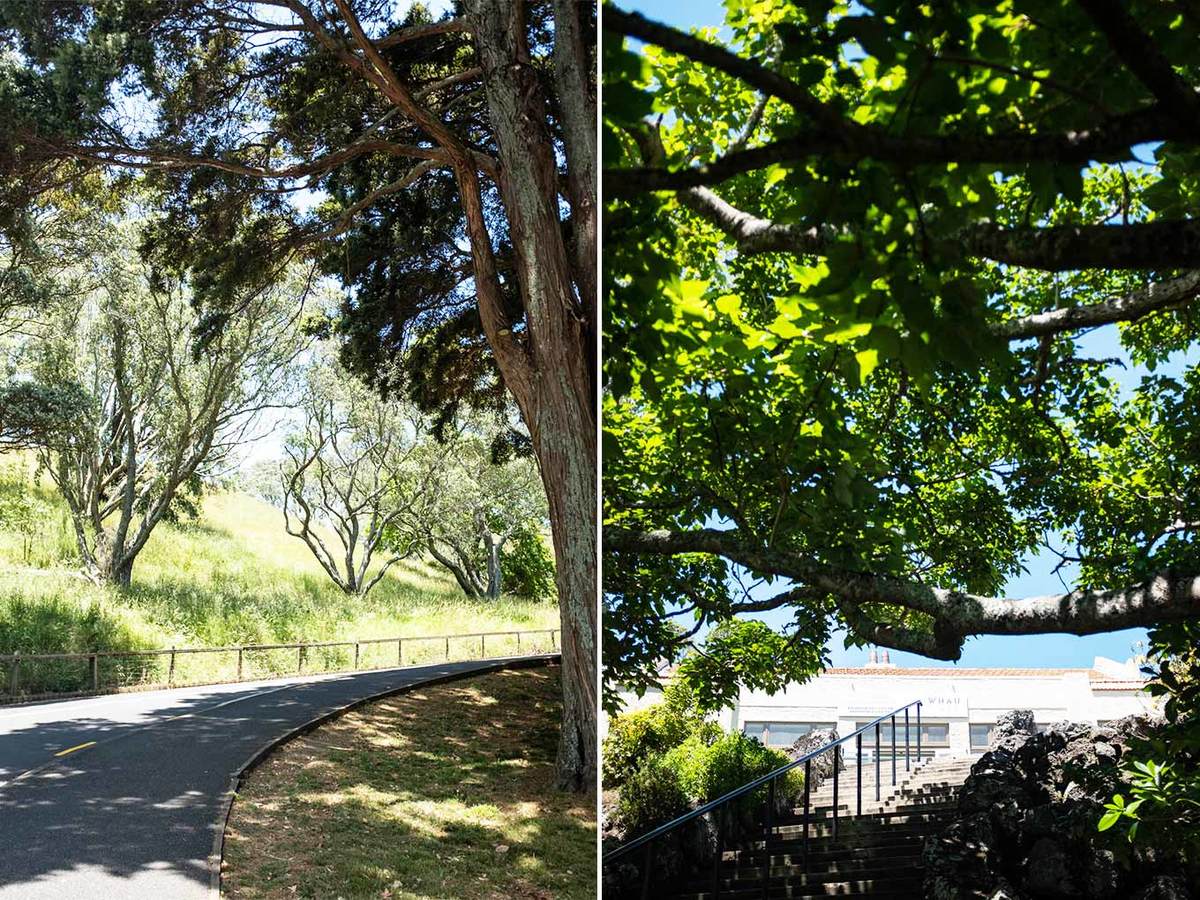
You’ll also find kumara on the menu, as well as kawakawa, horopito, fried bread crumpets, kai moana, kamo kamo and mussel fritters. All the dishes have Maori names and Puru says tourists have been giving proper te reo pronunciation a good go. There’s ika mata, te ahi komau (vine tomatoes, goat cheese and kumara sourdough) and kumara o rongo (kumara pancakes) all cooked by Nick Ravilich whose name you might have heard in connection to Stokehouse, a fine dining restaurant in Melbourne, and Hawker and Roll, a Malaysian Auckland restaurant.

Huri Rapana, who manages the cafe along with Tumahai and Puru’s business partner Jacqui Perillo, explains all the dishes have been given Kiwi aspects; the roast pork roll, called Tamaki Makaurau on the menu, has been smoked over Manuka chips. The menu has words for a karakia (Maori blessing) on it in both English and Maori. And of course, they’re still doing soft serves and are proudly serving Kokako’s fairtrade organic coffee.
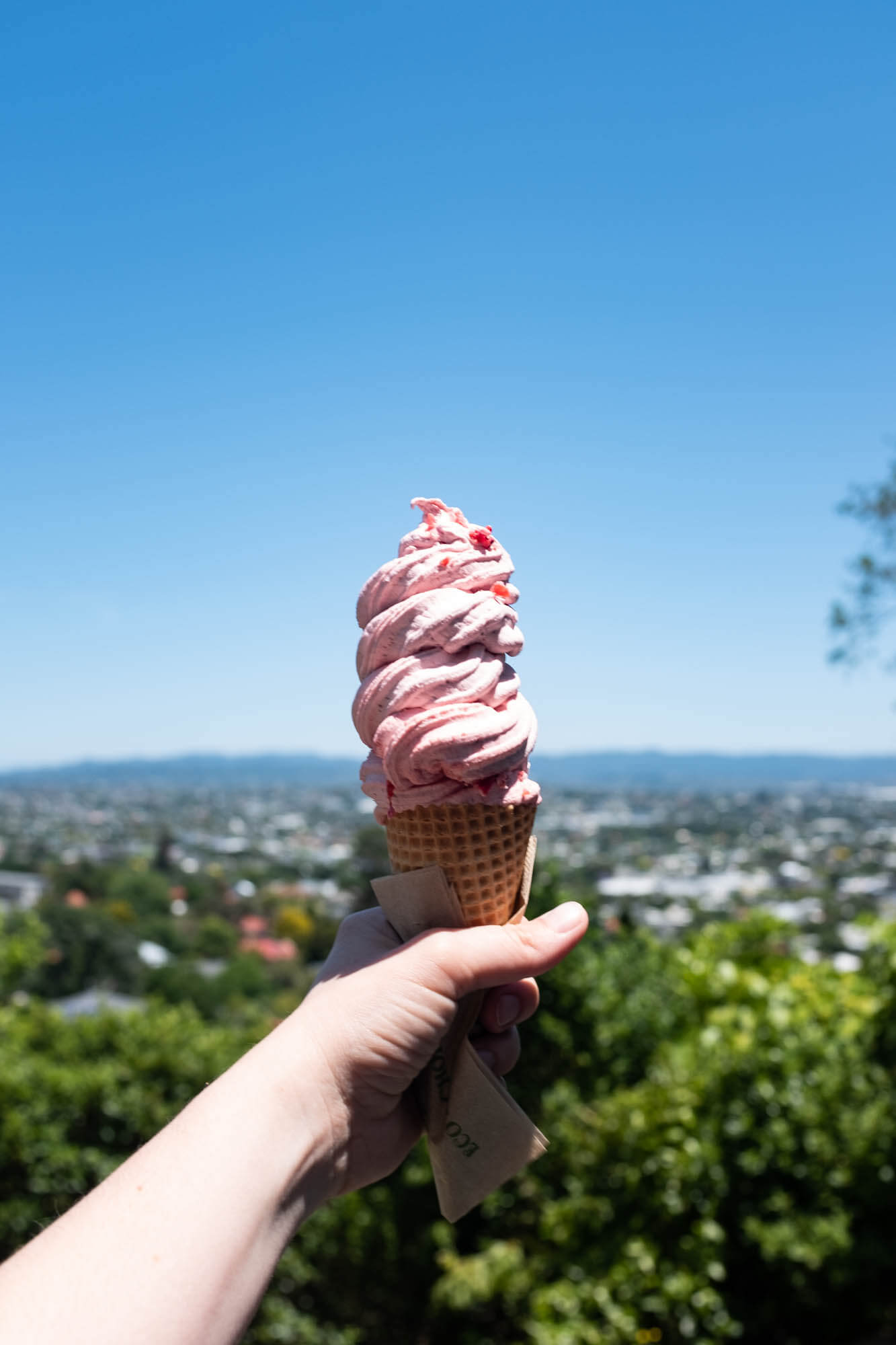
The passion of everyone involved is evident and ardent. They’re committed to Maori values first, business second – more interested in feeding patrons and treating them like family than making a profit. As Tumahai explains, the café’s motto, “Te Ipu Kai O Te Aroha” – “The Food Bowl of Love”, conveys both a love for the food and a love for the people. They’re running the cafe and discovery centre with a love of people, food and the mountain, trusting that success will follow.
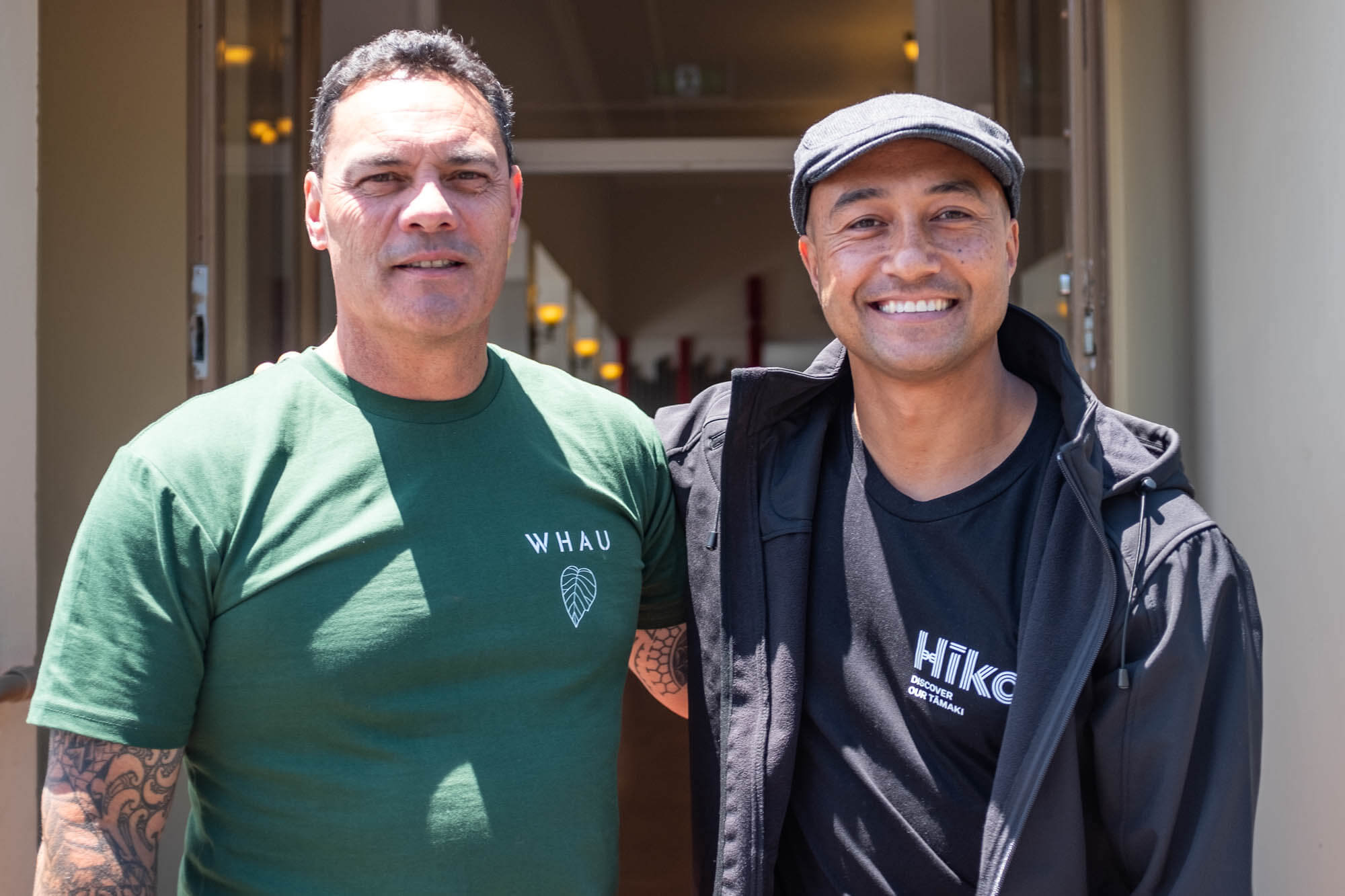
Next, The team behind Whau looking to start guided tours of the Maunga, explaining its story and significance and passing on the immense respect they have for it. They’re keen to share their passion. And it’s contagious.
Puhi Huia Rd,
Mount Eden

